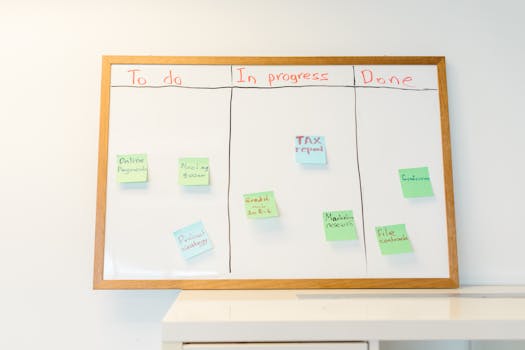Introduction

In the modern world, where distractions lurk at every corner and the pace of life accelerates daily, mastering time management has become a prerequisite for personal and professional success. Effective time management can be a game-changer, enabling individuals and organizations to increase productivity, achieve goals, and pave the way for growth.
Sculpt a Time Budget

The first step in managing time efficiently is to create a time budget. This involves assessing and allocating your time systematically across various tasks and responsibilities. A time budget will help you visualize how much time to spend on specific activities and remain accountable.
- Track Your Time: Use digital tools or journals to log your activities for a week. Identify patterns, peaks of productivity, and mindless routines.
- Break Down Tasks: Assign time slots for each task according to its complexity and urgency. This allows more controlled and manageable progress.
- Prioritize Tasks: Use techniques like the Eisenhower Box to separate what’s important from what’s urgent—making informed decisions about what deserves your focus.
Utilize Time Management Tools

The digital age brings with it various tools and applications that simplify time management. Leveraging these tools can improve efficiency substantially. Below are some effective tools you could consider:
- Trello or Asana: These task management platforms allow users to create tasks, set deadlines, and collaborate effectively with others.
- Toggle or Harvest: Time tracking tools that help you monitor how you allocate your time across tasks or projects.
- Google Calendar: Utilize this to set reminders and block out chunks of time dedicated to important tasks—ensuring that timelines are adhered to.
Implement Advanced Techniques

While having a conscious time budget and utilizing tools is crucial, diving into advanced time management techniques can unleash immense potential. Here are a few proven approaches:
- Pomodoro Technique: Work for 25 minutes, then take a 5-minute break. This bursts maintaining focus and combating fatigue efficiently.
- Time Blocking: Dedicate specific blocks of time to types of work or specific projects. Enhance your focus and eliminate multitasking.
- Two-Minute Rule: If you can do a task in two minutes or less, do it immediately to prevent an accumulation of small tasks.
Establish Boundaries and Avoid Multitasking

Being the most productive version of yourself mandates managing potential distractions and delineating work time from personal time. Here’s how you can establish effective boundaries:
- Eliminate Distractions: Identify specific distractions, whether mobile notifications or idle cubicle conversations, and reinforce actions to minimize them.
- Designate a Workspace: An organized environment helps in associating a space with productivity. Eliminate all unwanted elements to focus purely on your tasks.
- Say No: Understand the power of declining commitments that push aside your major goals. Protect your time like a commodity.
- Avoid Multitasking: It dilutes focus. Instead, accomplish one task at a time to realize greater effectiveness and creativity.
Takeaways

Incorporating effective strategies for time management into your daily routine can drastically enhance productivity:
- Craft a conscious time budget to pave researchers on focus.
- Leverage technology but set limitations to avoid over-reliance.
- Immerse yourself in methods like time blocking or the Pomodoro Technique.
- Leverage best practices in structuring workspaces and guarding against distractions.
Conclusion

Ultimately, the crux of successful time management lies not only in finding the right strategies that suit your working style but also empowering yourself to uphold them consistently. Adapting these approaches will prime you for achieving not only better productivity but a robust character(cuts), heralding self-discipline as your keen ally toward success.
References

